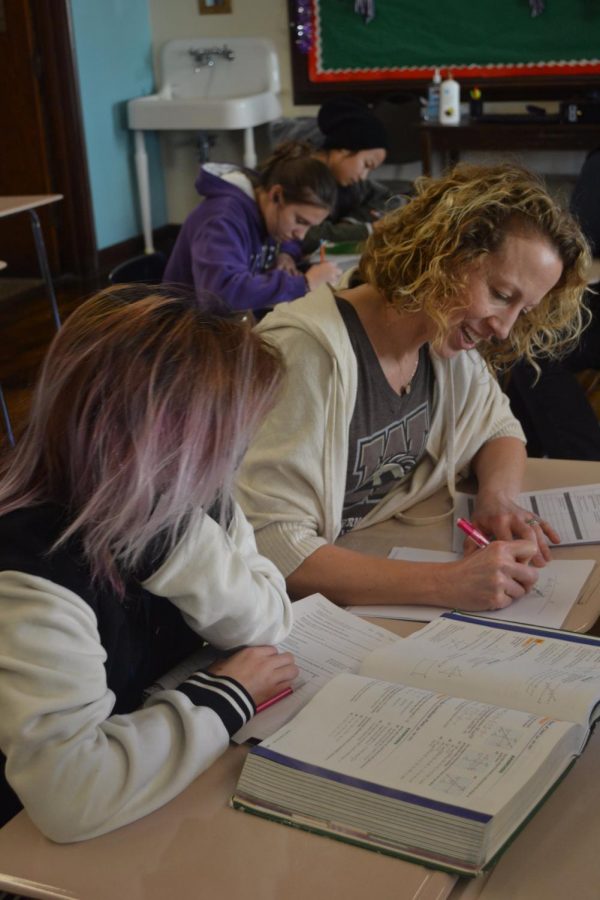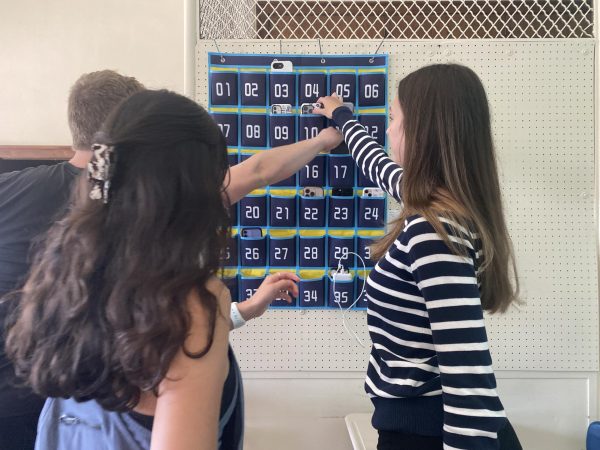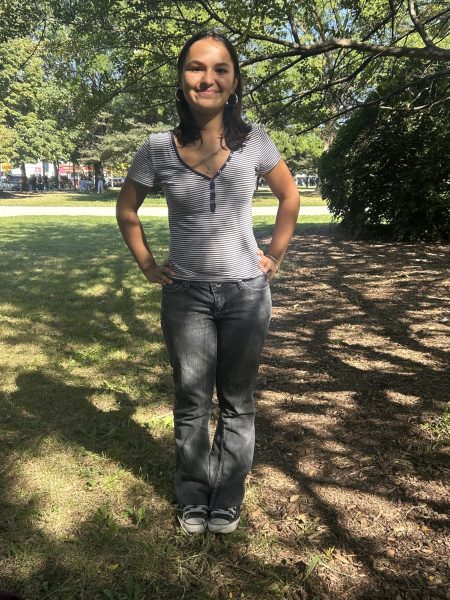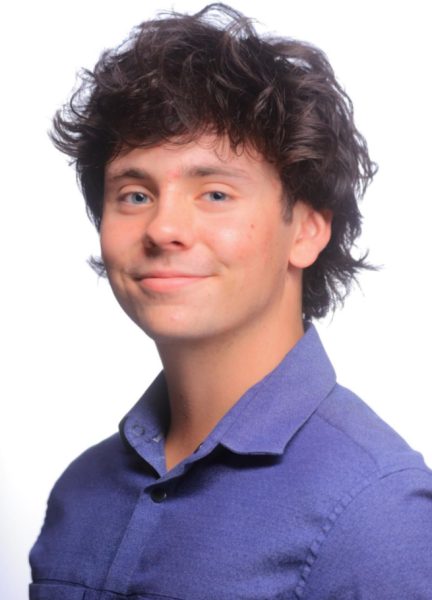Teachers draw from prior experience
Ms. Atwood, a math teacher, gives students instruction during their classes.
As students listen on in Dr. Smallfield’s Honors Nanoscience and Nanotechnology class, they are told her life story and the story of how she ended up as a teacher at Lane. After receiving her Ph.D. from Ohio State University, she went into the corporate world to work in the research and development labs for a textile company.
After working at that job for several years, her employer wanted her to relocate to a remote part of Georgia in which she didn’t want to move to. That’s when she left the corporate world to become a teacher.
Although some teachers enter the field the moment they graduate from college, many others have taken a more unorthodox path. In fact, a 2005 study from the Stanford University Center for Education Policy Analysis, reveals that 46 percent of teachers have no prior work experience, while only 19 percent have over 6 years of prior experience.
Even though they’ve joined their teaching peers later in life and have less experience teaching in the classroom, they use their experiences to become better at what they do.
Ms. Atwood, a first-year math teacher at Lane, spent last year as a teacher’s assistant at Northside College Prep. That was her first year in the classroom. Previously, she had worked in the hospitality industry before become an entrepreneur and running her own business.
“I feel like I know it gives me a much different perspective having had several jobs in my life before coming here,” Atwood said. “It gives me a perspective that can help students as we build relationships and as I get to know students in the classroom.”
Smallfield gave similar responses to Atwood.
“It’s given me more places to draw on,” Smallfield said. “The more experiences you can draw from as a teacher the more you can share with others.”
This can be very useful for students who want to pursue science because Smallfield has direct experience in that field.
“I had one girl a few years ago and I pestered her for two years, ‘you really should take a computer science class,’” Smallfield said. When the student came back to visit, Smallfield found the student had earned a minor in computer science.
“She didn’t even remember that I had pushed her in that direction,” Smallfield said. “I could tell that she would be good at that.”
Both teachers believe that they can better prepare students to have the knowledge they need to succeed in the world because of their previous experience.
“I understand more about what I’m preparing students for, both in their college education and in their careers,” Smallfield said.
Atwood’s reasoning behind her transition into teaching is that despite being a successful business woman, she did not have a sufficient knowledge in math. This was because she was intimidated in high school by her math teachers. Because of her poor high school experience, Atwood said she attempts to teach in a different style than the majority of teachers.
“I try to make it a very comfortable environment, not a competitive or intimidating one,” Atwood said.
Ms. Young, a chemistry teacher, who has worked at Castrol Industrial, the Seattle Veterans’ Affairs Hospital’s research division and the University of Illinois – Chicago’s pharmacy lab, has been teaching at Lane for 10 years.
Young said that the biggest thing she can take from her experience in the research world is the ability to adapt and think quickly.
“It’s hard to think on your feet,” said Young. “Thinking on your feet is a skill that takes time but I feel like research really helped me with that. If something is going wrong, you’ve got, sometimes, only a minute to figure out what you need to do. I feel like that is helpful.”
While teachers like Young and Smallfield currently teach in a subject comparable to their previous job experience, Mr. Maslanka, an English teacher at Lane, has a very different experience.
“I was a cameraman,” Maslanka said. “I worked in TV and video for about 13 or 14 years. I worked for the CBS Station in Tulsa, Oklahoma first and then I came to Chicago and worked for what was called Orbis Broadcast Group, and we freelanced for all kinds of different TV shows and companies.”
That job is a stark contrast to teaching English.
Maslanka switched to teaching in the middle of his career, after he got tired of doing things he wasn’t interested in in his previous career. “The important thing is to move in a direction but to always be open to going somewhere else,” said Maslanka. “I can bring a little bit of my understanding of that to class and the students.”
The common theme between all these teachers is that they have made a change to doing something meaningful, to teach and aid in the continuing of education. After making this important change in their lives, they can now use their prior experiences to aid them in their new job.
“That gives you a very stereoscopic view of life,” said Maslanka. “It’s great to have depth of experience.”
Your donations directly fund the Lane Tech student journalism program—covering essential costs like website hosting and technology not supported by our school or district. Your generosity empowers our student reporters to investigate, write, and publish impactful stories that matter to our school community.
This website is more than a publishing platform—it's an archive, a research tool, and a source of truth. Every dollar helps us preserve and grow this resource so future students can learn from and build on the work being done today.
Thank you for supporting the next generation of journalists at Lane Tech College Prep!
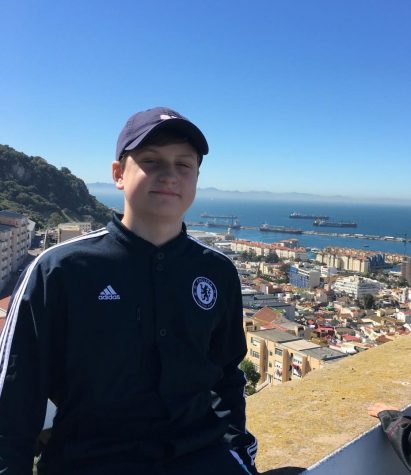
Bradley, a Senior Sports Editor, is currently in his second year on The Warrior staff. He joined last year’s staff in order to become more involved and...

